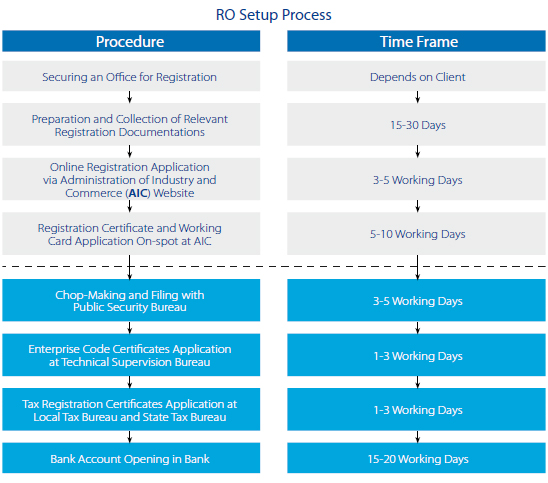By Eunice Ku
Oct. 29 – When a foreign company decides to try and sell to the Chinese market, there are several options – working through an agency or distributor, or registering a representative office (RO). Whereas an agent or distributor may have limited loyalty or little interest in end-user satisfaction, an RO is an effective way for foreign investors to get a feel for the Chinese market while demonstrating commitment to the market. It is the easiest type of foreign investment structure to set up and, unlike the wholly foreign-owned enterprise, has no registered capital requirements.
The defining characteristic of an RO is its limited business scope – an RO is generally forbidden from engaging in any profit-seeking activities, and can only legally engage in:
- Market research, display and publicity activities that relate to company product or services; and
- Contact activities that relate to company product sales or service provision and domestic procurement and investment.

While an RO is relatively easy to establish and maintain, they are fairly limited in terms of operational scope since they cannot actually issue invoices (i.e., fapiao, the basis for obtaining tax deductions in China) or sign contracts.
An RO has no legal personality, meaning it does not possess the capacity for civil rights and conduct, cannot independently assume civil liability, and is limited in its hiring ability. Chinese staff working for an RO, although not limited in number, must be employed through a human resources agency that will sign a contract with the RO on the one hand and with the Chinese staff on the other in order to ensure social security and housing fund contributions are paid on a regular basis. No more than four foreign employees can be hired per RO. Foreign staff working for ROs should have an employment relationship with the parent company abroad, and any disputes should be settled under the laws of that country.


